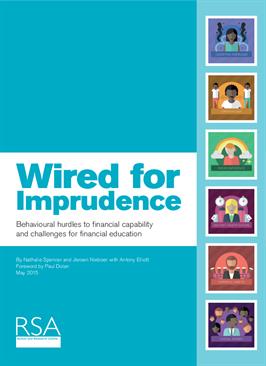Managing money well can be a struggle for the best of us. Paying bills, managing debt, and planning for the future can feel daunting and exhausting.
A growing body of research from the field of behavioural science shows that some of our natural human characteristics undermine financial capability, making it hard to manage money well. This paper explores these ‘behavioural hurdles’, as we call them, and explains why they matter. Cognitive overload, empathy gaps, optimism and overconfidence, instant gratification, harmful habits, and the influence of social norms can all be problematic for financial capability.
This subject is important not only because many people are struggling financially, but also because it highlights the point that poor financial capability is not simply a problem of lack of information. These dispositions are not character flaws, and do not affect only a select few: in general, we are not wired to handle money well. This psychological perspective suggests that, despite our best intentions, we are wired for imprudence.
The existence of these behavioural hurdles, coupled with various challenges to providing effective financial education, leads us to conclude that simply providing more financial education in its current form will not meaningfully improve financial capability. The courses provided currently need to systematically incorporate understanding from the existing research. As importantly, more research and better evaluation should be conducted to determine what works best to deliver lasting improvement in light of our human nature.
Of course psychology is not the only reason that people struggle with money. Other issues need to be addressed, too. These behavioural hurdles are one small piece of a bigger puzzle, and this report helps to explain what they mean for us and why financial education should be designed with them in mind. Similarly, with a better understanding of these behavioural hurdles, financial service providers should design products, and policy makers should design policy, in ways that work with the grain of human nature and help us to be financially capable.
We hope that the line of reasoning and the behavioural insights included in this paper will be of interest to policy makers, education providers, financial services institutions, and anyone curious as to why managing money well can feel like an uphill struggle.
pdf 1.8 MB
Contributors



